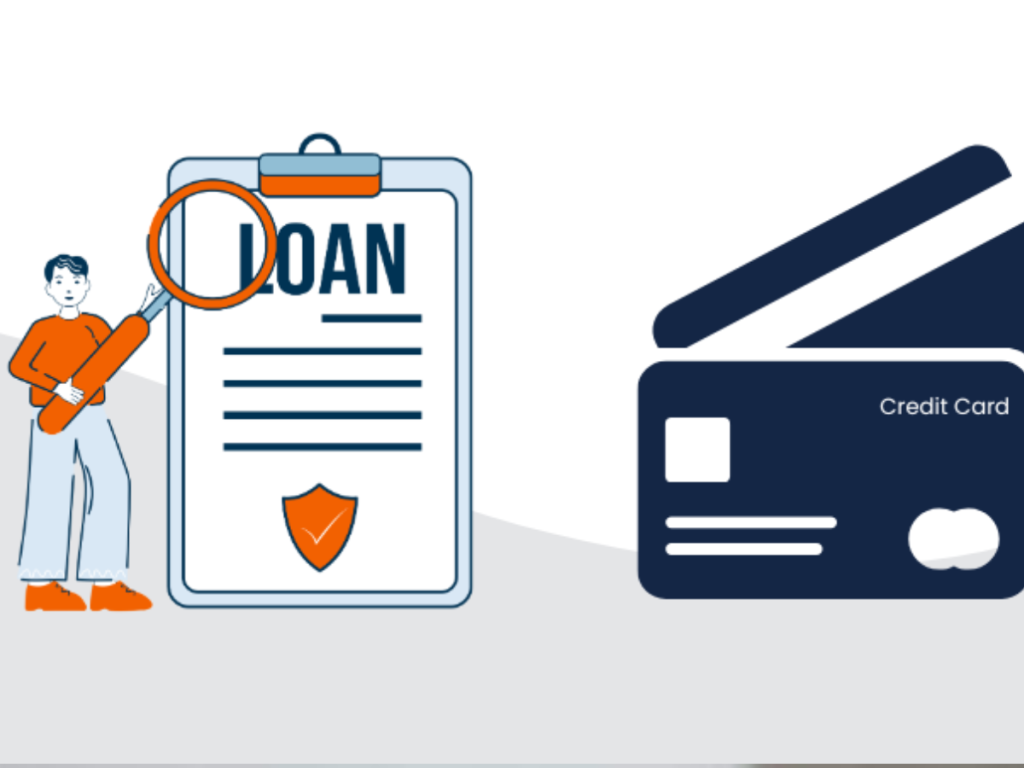Introduction
Personal loans have gained popularity as a flexible financial solution for individuals to meet various needs. Whether it be unexpected expenses, debt consolidation, or even major life events, personal loans can provide an easy way to access funds without requiring collateral. However, knowing when to consider a personal loan is actually an important step towards using and managing one properly. Let’s take a look at some ideal scenarios for you where a personal loan might be the right option, plus some things to check over before applying.
What Is a Personal Loan?
A personal loan is another form of unsecured loan that extends a single amount of money to the borrowers, normally paid back in fixed monthly installments over some predefined time. Unlike secured loans, such as mortgages or car loans, personal loans do not require collateral, making them accessible for a broader range of borrowers. The interest rate on a personal loan depends on factors such as credit score, income, and repayment history.
When Should You Consider a Personal Loan?
1. Debt Consolidation
Probably the most frequent use of personal loans is paying off multiple debts with one payment. If you owe money on your credit cards, have payday loans, or other types of high-interest debt, you can simplify your finances with a personal loan. You will be able to combine such obligations into one loan with a lower interest rate and, therefore, decrease the overall cost of your debt, making it easier to repay.
Example: If you have three different credit cards, each with more than a 20% interest rate, a personal loan with a 10% interest rate can save you several hundreds, if not thousands, of dollars in interest over time and help pay off your debt faster.
2. Emergency Expenses
Life is unpredictable, and there may be situations when emergencies arise at the least expected times. Medical emergencies, urgent car repairs, or damages to your home in natural calamities are very burdensome on your finances. It is for such instances that a personal loan becomes handy and gives quick access to cash for meeting urgent needs without being forced into payday loans or tapping long-term savings.
Consideration: Always compare interest rates and repayment terms before opting for a personal loan to ensure you’re not paying excessive costs for the emergency funding.
3. Financing Major Purchases or Life Events
Be it a wedding, honeymoon, jubilee celebration, or a major purchase in the form of furniture or electronic equipment, there are life events that require financial support. Personal loans can help finance these expenses by allowing you to spread the cost over several months or years.
Key Tip: While personal loans can ease the financial burden of such events, it’s important that this expenditure aligns with your long-term financial goals and you can afford the monthly repayments.
4. Home Improvements and Repairs
Personal loans for home improvement may be a great option, particularly for those who either don’t have equity in their homes or prefer not to use their homes as collateral. This can include renovations to your kitchen, upgrading energy-efficient systems, or structural repairs that enhance both the value of your property and your quality of life.
Advantages Over Alternatives:
- A personal loan does not carry the same foreclosure risk with a home equity loan if one defaults on repayment.
- Approval is often quicker, hence suitable for urgent repair works.
5. Educational Expenses or Skill Development
While student loans are the more traditional option to finance higher education, personal loans can be considered for minor requirements in education, such as professional certifications or skill development courses, often referred to as training programs. This can enhance your career and earning potential.
Caution: Borrow only the amount necessary, and make sure the course or certification is worth investing in for your career growth.
6. Starting a Small Business
Though business loans are considered better for financing a startup, they are hard to get for new entrepreneurs because of a lack of credit history or collateral. In such scenarios, personal loans come into play as an alternative financing option. They can help in covering the initial expenses-be it equipment, inventory, or marketing.
Entrepreneurship Tip: Always keep a clear plan for the repayment schedule, ensuring that the business generates sufficient funds to serve the loan on time.
7. Building or Improving Credit
A personal loan will help in cases where one wishes to set up or boost their credit score. One may borrow an amount that they know they will have to pay within time to assure your credibility to financial management, as will be reflected on your credit report.
Note: Borrow no more than what you need to, as this is to build credit with no extra financial burden.
When Should You Not Take a Personal Loan?
Though personal loans are filled with several benefits, sometimes they may not be an ideal option. Following are instances when you must avoid a personal loan:
- For Financing Non-Essential Luxuries
Taking a personal loan for vacation trips, high-class gadgets, or posh items invites unrequired burdens on your wallet. It’s always better to save for those rather than borrow. - If You Can’t Afford Repayments
You should not borrow beyond your means. This will help you avoid missed payments and late fees and preserve your credit score. Always ensure a steady source of income to meet the monthly installments. - Poor Credit Resulting in High-Interest Loans
Having a poor credit score makes you qualified only for those loans whose rates are way unreasonably high. So, if so, you will be better off by bringing on some improvements on your credit score. - Speculative Investments
Never take a personal loan to make risky investments like cryptocurrency or stock trading. Returns are never certain and losing can put you deep in debt if the tide goes against the investment.
Factors to Consider Before Taking a Personal Loan
Before one proceeds with an application for a personal loan, here are several aspects that are usually considered:
- Interest Rates and Fees
Compare offers from different lenders for the best rates and least amount of fees. - Loan Terms
Make sure the payback period fits your financial situation. Longer terms will lower the monthly payment amount but could raise the total cost because of interest. - Purpose of the Loan
Be specific for the reason for which you need the loan, and avoid taking more than what is necessary. - Your Credit Score
A good credit score always helps in fetching better rates of interest and good terms. - Reputation of Lender
Research well about the lender to ensure they are reliable, with clear and understandable terms for lending.
Conclusion
Indeed, a personal loan can become a valuable tool in your armoury of financial management-if deployed judiciously. It serves all purposes: from paying off debt and dealing with emergencies to financing major purchases or life goals. It offers a flexible solution for different needs. However, assessment of one’s financial situation, repayment capability, and loan terms has to be made beforehand. With responsible borrowing and careful planning, a personal loan can provide you with the money needed to reach your goals without setting your long-term stability back. Remember, the secret to successful borrowing is to make informed choices that are appropriate for your situation.

